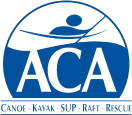by Gregg Berman. Published in Bay Currents, October 2008.
Note: This article is not intended to give medical advice. Contact your physician before taking any medications.
I am sure that more than one sea kayaker has experienced some form of sea sickness. As the winter approaches there are many opportunities for coastal kayaking, whale watching and other activities that may require paddling or being on a boat in wind and waves. If you would rather not feed the fish during your trip, here are a few suggestions.
Food
Start eating to avoid seasickness the evening before at the latest. This means avoiding spicy food, or acidic foods (things like tomato based dishes, salsa, or citrus fruits). The more acid in your stomach, the more prone to seasickness it will be. Excess stomach acid production is how seasickness begins, so why start with an acidic stomach. Also avoid anything high in fat including fatty meats, high fat dairy, or anything else with high fat content. Fat slows the absorption of food (a good thing in some circumstances but not this one) causing things to sit in your gut much longer, thus increasing the likelihood of seasickness. Fatty foods also increase stomach acid production. Finally, avoid alcohol the night before. Make sure you eat the morning of the trip. An empty stomach is more prone to seasickness. A good protein source and carbs like oatmeal or cereal is best. Also bring some snacks for the trip. Things like low fat breads or crackers actually absorb the excess acid in your gut. And munching while on the boat actually helps forestall seasickness.
Medications
There are quite a number of medications, both prescription and over the counter. If you are prone to any type of motion sickness, a two prong attack is best, meaning using motion sickness specific med as well as acid reducers. For motion sickness, there are prescription remedies such as a scopolamine patch worn behind the ear or Meclizine pills. Meclizine can be purchased over the counter under the name Bonine. It does not cause the same drowsiness as the most common over-the-counter med, Dramamine. For acid reduction, over the counter meds like Pepcid, Tagamet or Zantac work great but they are for future acid production (take in advance). For acid that is already present, you should have chewable tabs like Tums or Rolaids.
Natural Remedies
Ginger has been shown to help prevent motion sickness and can be taken as tablets, as candied ginger to chew or even from the side of your sushi meal. (Plus in addition to the good carbs and low fat protein of sushi, it is made from fish, which is all else fails could be good for your friends. You could also try "Sea Bands" which work through acupressure and are basically a wrist band with a plastic bead to apply pressure inside your wrist. For some these work great and for others not at all. There are versions that send an electrical impulse that seem to produce better results.
Some Final Things To Remember
Get a good night's sleep as you'll be less susceptible to motion sickness when well rested. Staying by the stern of the boat is better than the bow or either side as there is less overall motion there. Staying in fresh air and not in the cabin or below deck is also better if you start feeling the effects. And if you do start to feel bad, focus on the horizon. Focusing on a specific object or through a camera lens or through binoculars can all produce or exacerbate motion sickness. I've seen folks who were fine until they spent too much time looking through their camera viewfinder and then spent the rest of the trip feeding the fish. I'm not saying don't take pictures or look through binoculars, just be cognizant of how your feeling and stop if symptoms start to come on. Don't wait till you are already sick. So in short, even those of us prone to motion sickness can prevent it so start your regime early and most importantly, remember to HAVE FUN!!!
Back to Miscellaneous Articles

